Easy Care Indoor Plants that Purify the Air
Posted by Scott Sharkey on Jan 6th 2023
Everyone's home could use a good cleaning right? Well, how about cleaning the air too?
Indoor plants are very popular these days, as they should be. Who doesn't love to bring the indoors literally to life with a few (or few dozen) plants that give off fresh oxygen while absorbing impurities from the air? Most folks don't realize that living indoor plants can actually clean toxins that are trapped inside your home. Below is a list of some of our favorite plants that are also easy to care for.
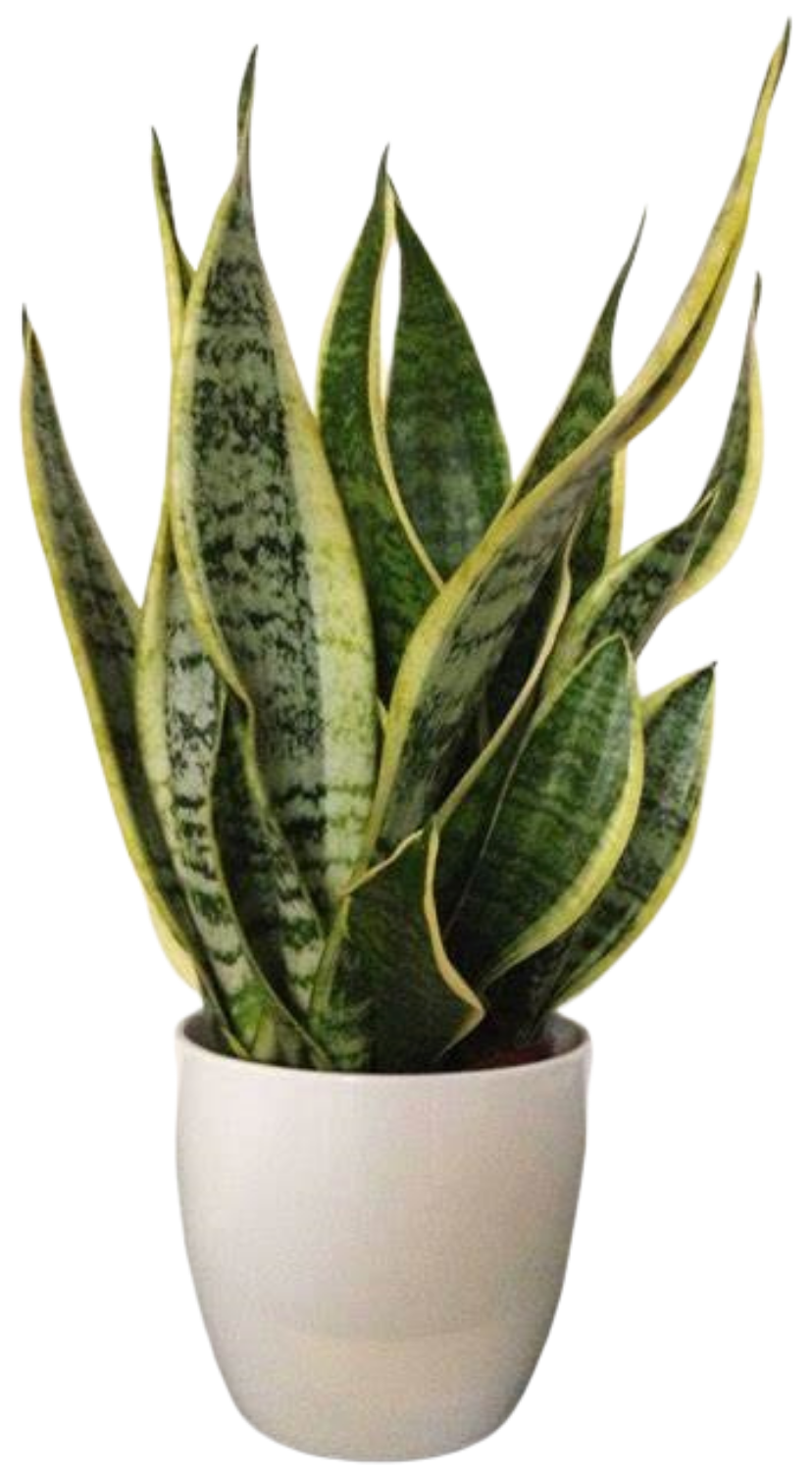 Snake Plant (Sansevieria, aka: mother-in-law's tongue)
Snake Plant (Sansevieria, aka: mother-in-law's tongue)
We'll start our list with probably one of the absolute easiest-to-care-for plants. The snake plant is an evergreen perennial. It is unique in the plant world because it will exchange oxygen through microscopic pores on its leaves during the night, instead of all day long. So your sleep will be refreshing as the snake plant adds fresh oxygen to the room.
- tolerant of low light levels and irregular watering
- water once a month during winter
- will rot if overwatered
- absorbs nitrogen oxide and formaldehyde
- fertilize with Beat Your Neighbor fertilizer about four times a year
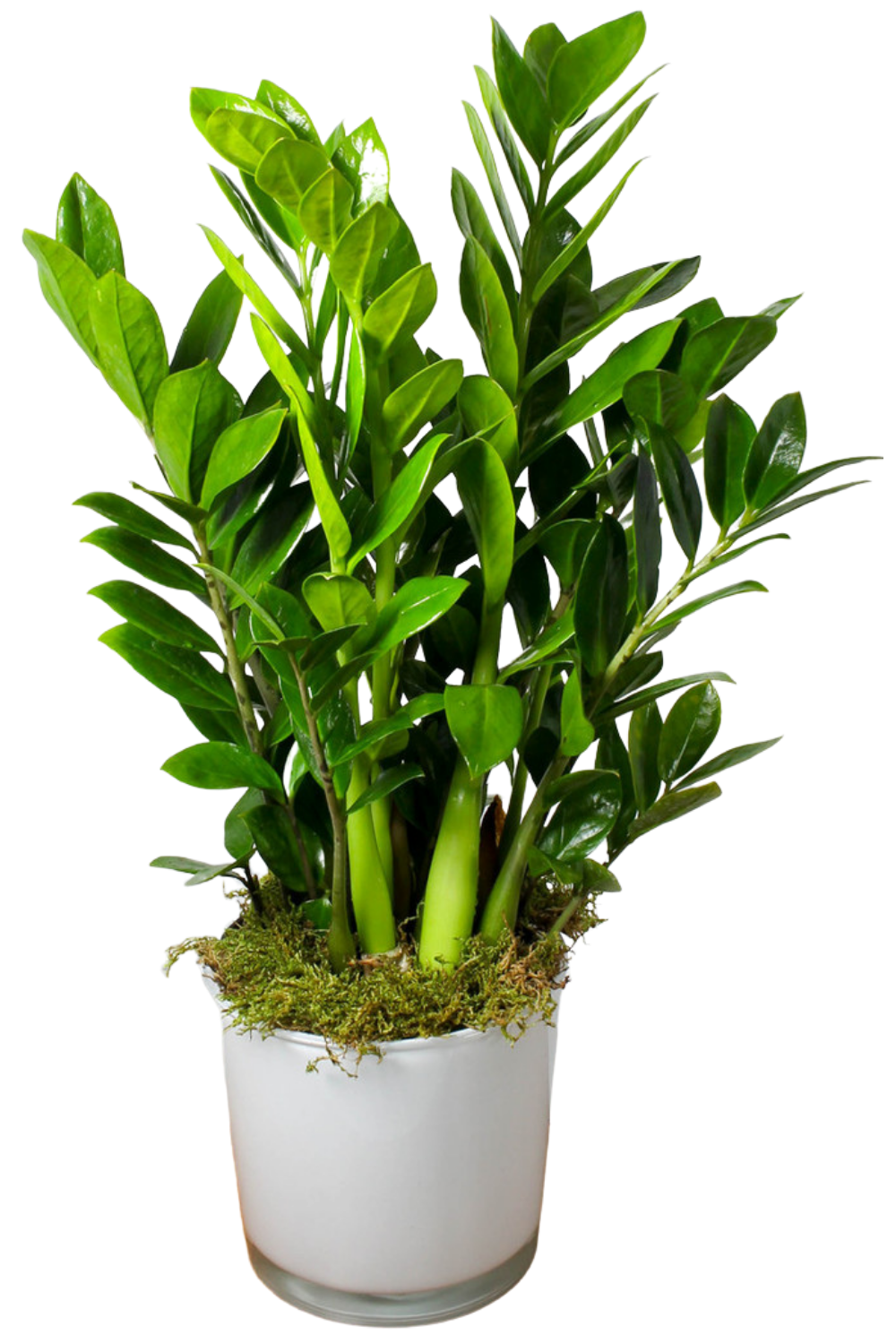 ZZ Plant (short for Zamioculcas Zamiifolia)
ZZ Plant (short for Zamioculcas Zamiifolia)
The ZZ plant is a tropical perennial native to Africa and grown as an ornamental plant for its attractive, glossy leaves. The ZZ plant is also super easy to care for and in turn will work at purifying the air of volatile organic compounds such as formaldehyde, which evaporates from paint and resins within your house.
And when it comes to care, the best thing to do is forget about them. ZZ plants can go for months without water, think of them like a cactus. In fact they will do worse if you keep watering them. The rare way that a ZZ plant can die is from over-watering. If the plant turns yellow, it may indicate over-watering.
- suitable for bright, open rooms
- absorbs formaldehyde and other volatile organic compounds
- grows 18"-24" tall
- fertilize with Beat Your Neighbor fertilizer half-strength, about twice a year during summer months
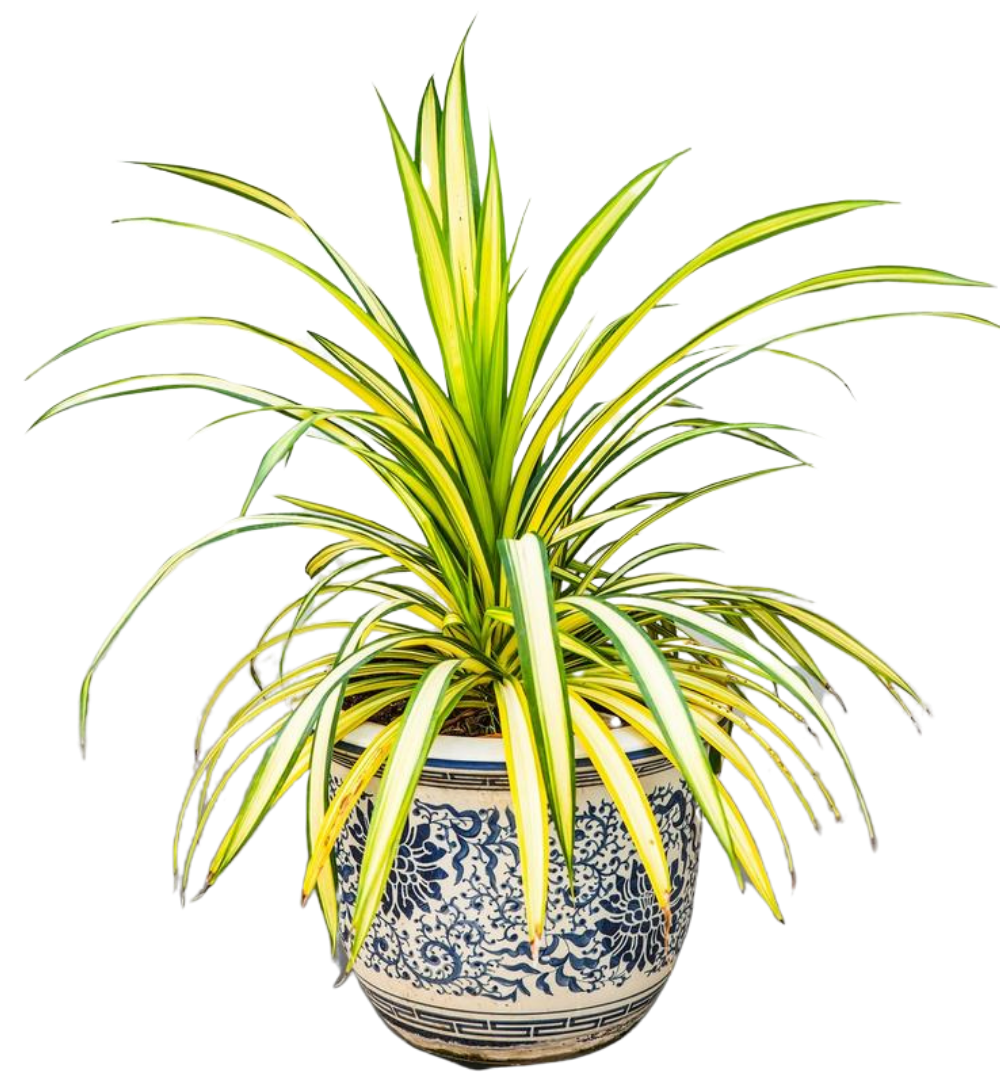 Spider Plant
Spider Plant
The spider plant is another common indoor air cleaner known for it's prolific ability to create miniature spiderettes as new plants that dangle down from the mother plant. It is native to tropical and southern Africa. The most common spider plant is the variegated variety.
- removes formaldehyde, carbon monoxide and other toxins
- tolerates bright, indirect light
- water them well, but don't allow soil to get soggy
- effective at cleaning formaldehyde and xylene from indoor air
- spiderettes can be rooted in water or soil to create a brand new plant
- fertilize with Beat Your Neighbor fertilizer about once a month
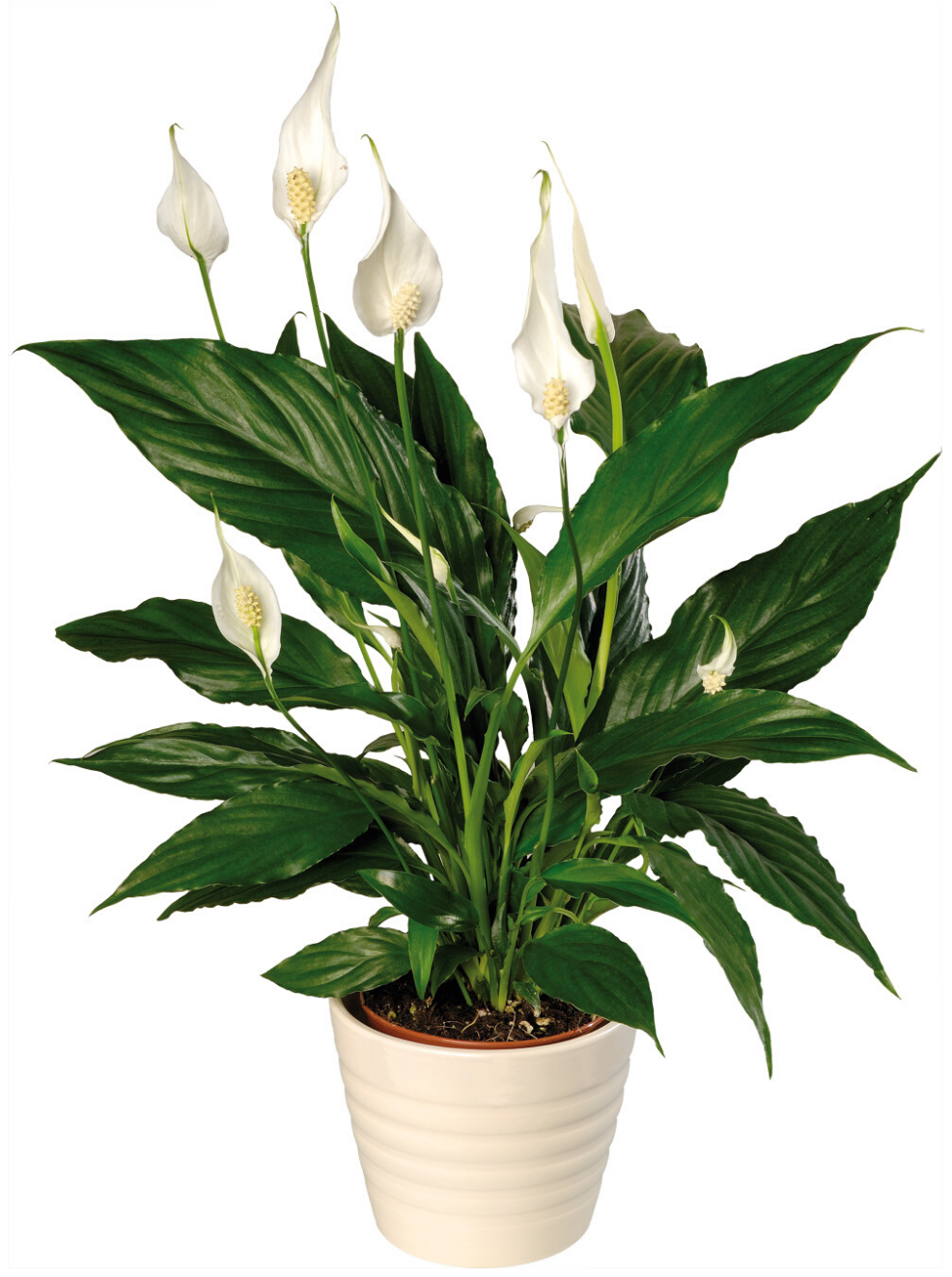 Peace Lily (aka: Spath, short for Spathiphyllum)
Peace Lily (aka: Spath, short for Spathiphyllum)
The peace lily is probably the most common house plant. It is very easy to grow if you remember one simple rule: just add water. Peace lilies will constantly drink, in fact the easiest thing to do is put a deep tray underneath and fill it up so that it can "drink." This is the preferred method for watering a peace lily, from the bottom up. They don't care for water up top, so it's best to fill the tray and let it absorb moisture in. There are very few plants that can tolerate having really wet roots, but the peace lily will do just fine and will quickly droop if they go too dry.
They can even tolerate having their roots in aquarium water. We once had a beta fish in a glass bowl, so we plunked a small peace lily in the top of the bowl with the roots in the water and had it for years.
- rugged, can tolerate a variety of light conditions including semi-darkness
- removes mold spores, formaldehyde and trichloroethylene
- great for bathrooms
- fertilize with Beat Your Neighbor fertilizer half-strength, about twice a year during summer months
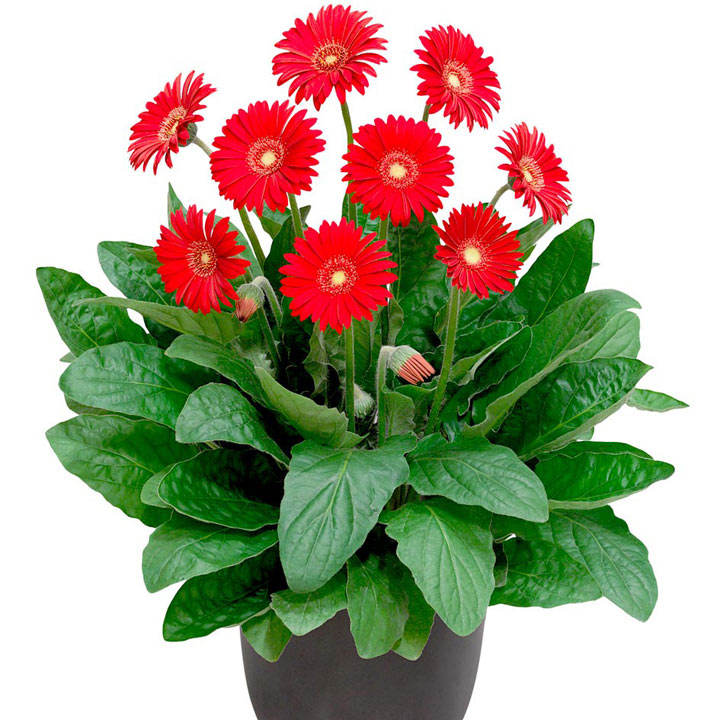 Gerbera Daisy
Gerbera Daisy
Gerbera Daisies are well known for being a showy cut flower, outdoor bedding plant and also as a great house plant. They are well known for their ability to absorb toxins and give off oxygen. One thing to watch for with Gerbera daisies is they can attract thrips (a small bug that likes to hang out and feed in the center of the flowers), so a systemic insecticide is recommended to prevent them.
- prefers bright sunny light
- absorbs formaldehyde and benzene, gives off oxygen
- fertilize with Beat Your Neighbor fertilizer once a month (house plants, outdoor Gerberas once a week)
Hope that helps with your decisions on house plants. All of the above plants will make a great addition to your home.
Be sure to check out the rest of our site. For more information on having the best plant food for your plants and flowers please click below.


